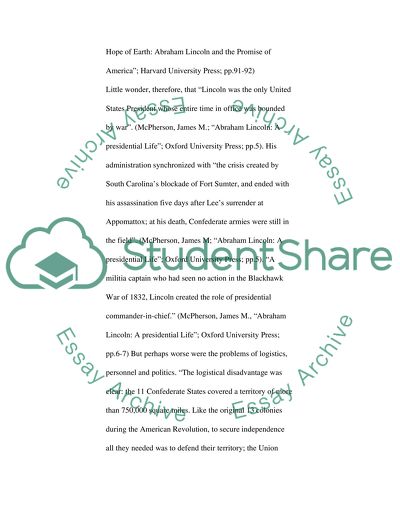Cite this document
(“Abraham Lincoln Essay Example | Topics and Well Written Essays - 1750 words”, n.d.)
Abraham Lincoln Essay Example | Topics and Well Written Essays - 1750 words. Retrieved from https://studentshare.org/history/1517369-abraham-lincoln
Abraham Lincoln Essay Example | Topics and Well Written Essays - 1750 words. Retrieved from https://studentshare.org/history/1517369-abraham-lincoln
(Abraham Lincoln Essay Example | Topics and Well Written Essays - 1750 Words)
Abraham Lincoln Essay Example | Topics and Well Written Essays - 1750 Words. https://studentshare.org/history/1517369-abraham-lincoln.
Abraham Lincoln Essay Example | Topics and Well Written Essays - 1750 Words. https://studentshare.org/history/1517369-abraham-lincoln.
“Abraham Lincoln Essay Example | Topics and Well Written Essays - 1750 Words”, n.d. https://studentshare.org/history/1517369-abraham-lincoln.


